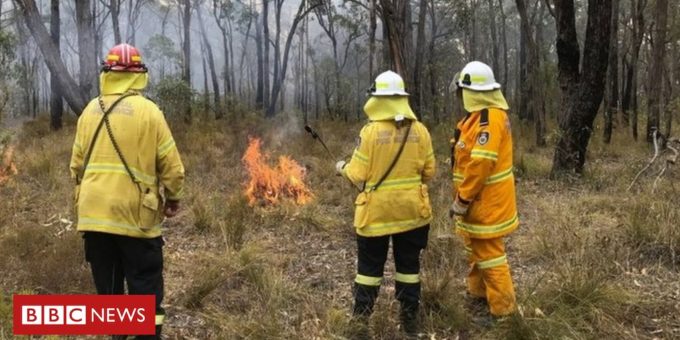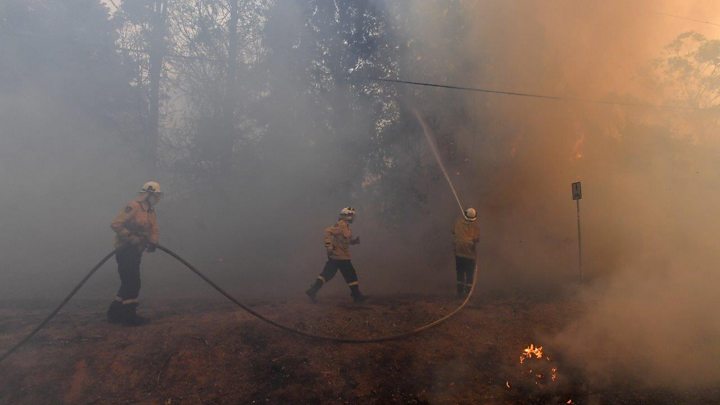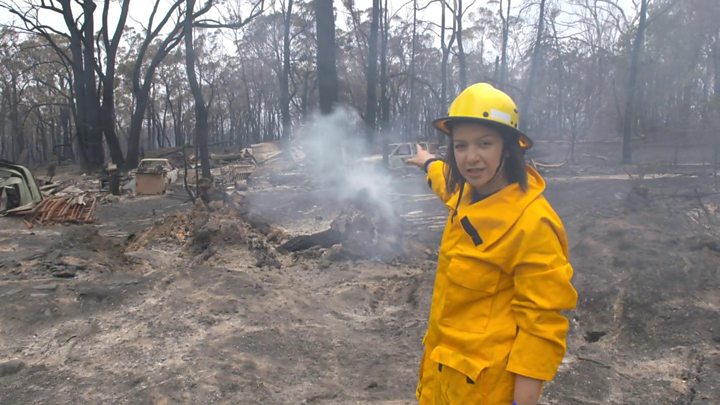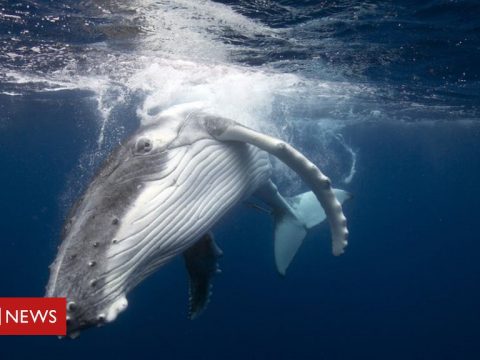
Image copyright
Reuters
Volunteers are working to put out a growing number of “spot fires”, which spring from larger blazes
It was a “freakish weather event” that killed a volunteer firefighter on Sunday, according to the New South Wales Rural Fire Service (RFS).
Powerful winds near the New South Wales-Victoria border lifted his 10-tonne truck off the ground and flipped it over, the service said.
Samuel McPaul, 28, was a newlywed who was expecting his first child.
In total, 10 people have died in the nation’s bushfire crisis since September.
Earlier in December, two volunteer firefighters died while battling a blaze near Sydney.
“To lose one of our own in such extraordinary circumstances is just tragic,” said RFS Commissioner Shane Fitzsimmons of the latest death.
Mr McPaul died at the scene, while the driver received minor burns and a third person suffered more serious burns.
A second vehicle was also blown over in the same area and the firefighters on board were taken to hospital, the service said.

Media playback is unsupported on your device
Meteorologists say a climate system in the Indian Ocean, known as the dipole, is the main driver behind the extreme heat in Australia.
Temperatures exceeded 40C (104F) in every state at the start of the week, with strong winds and lightning strikes bolstering the flames.

Media playback is unsupported on your device
On Tuesday morning, Commissioner Fitzsimmons said extraordinary fire behaviour overnight meant there was “every chance” more fires will flare up, according to the Sydney Morning Herald.
“I understand the bureau are looking to updating the forecast to be slightly worse than they thought was the case yesterday afternoon,” he said.
Meanwhile, the state of Victoria has seen mass evacuations.
Residents in three Melbourne suburbs – Bundoora, Greensborough and Mill Park – have been warned of a fast-moving fire.
A spokesman for Emergency Management Victoria, Luke Hegarty, told the BBC those that remain in East Gippsland have now been told it is too late to leave. The main road out of the area has been closed and firefighters withdrawn.
“Unfortunately it appears that our concerns have been realised this afternoon. These fires have continued to grow and now for a very large part of East Gippsland our advice to people is that it is too late to leave – they need to be sheltering inside their homes,” he said.
He added that the fires are continuing to spread. “The fires are also starting new fires ahead of them which we call spot fires, so bits of bark, leaves and the like, that blow ahead of the main fire front and start new fires,” he said.
What about the other states?
In South Australia, crews have battled other “catastrophic” fire conditions in a wine region north-east of Adelaide.
The island state of Tasmania also struggled to contain bushfires amid a sweltering heatwave.
Hobart, the state’s capital, experienced its hottest December day on record on Monday, when temperatures hit 40.8C.
Have you been told to evacuate? Email haveyoursay@bbc.co.uk.
Please include a contact number if you are willing to speak to a BBC journalist. You can also contact us in the following ways:
- WhatsApp: +44 7756 165803
- Tweet: @BBC_HaveYourSay
- Send pictures/video to yourpics@bbc.co.uk
- Upload your pictures / video here
- Text an SMS or MMS to 61124 or +44 7624 800 100
- Please read our terms & conditions and privacy policy
Credit: Source link











_0-100x100.jpg)

